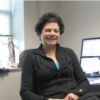University of Tokyo, Tokyo
Japan
Research Areas
AI-Based Methods, Assembly, Compliance and Impedance Control, Compliant Assembly, Computational and Artificial Intelligence, Computer Vision for Automation, Computer Vision for Other Robotics Applications, Control Architectures and Programming, Control Design & Engineering, Dexterous Manipulation, Dual Arm Manipulation, Education Robotics, Education Robotics, Force and Tactile Sensing, Force Control, Human-Centered Robotics, Humanoid Robots, Industrial Robots, Machine Vision, Mechanism Design, Optional Control, Parallel Robots, Parallel Robots, Reactive and Sensor-Based Planning, Robot Programming, Robots, Sensor Fusion, Sensor-based Control, Visual Servoing, Visual Tracking
Biography
Hirochika Inoue was born in Kagoshima City, Japan on July 5th, 1942. He studied Mechanical Engineering at the University of Tokyo, where he received a B.E., M.E., and Doctorate in 1965, 1967, and 1970, respectively. Between 1970 and 1978, he was a member of the robotics division at the Electrotechnical Laboratory (ETL, MITI Japan) working on their intelligent robotics project. This included collaboration with the Artificial Intelligence Lab at MIT. In 1978 Inoue returned to the University of Tokyo as an Associate Professor in the Department of Mechanical Engineering. He became a full Professor in 1984, and contributed to the development of the Department of Mechano-Informatics in the late 1990s. After retiring from the university in 2004, Inoue continued his career in robotics, serving as Inspector General for the Japan Society for the Promotion of Science (JSPS) from April 2004 to September 2009. He is currently a Professor Emeritus of the University of Tokyo and Senior Research Advisor for the Digital Human Engineering Research Center at the National Institute of Advanced Industrial Science and Technology (AIST) in Tokyo, Japan. Inoue’s research interests include a focus on the technical aspects of robotics, vision and hand-eye systems, planning and programming of robots, compliant control, system integration, and humanoid robots. His contributions to the field and his involvement in several robotics activities and publications have earned him many awards and honors, including the 1994 JIRA Award, the 1999 Joseph Engelberger Robotics Award, the 2005 IEEE Robotics and Automation Pioneer Award, the 2008 Emperor’s Medal with Purple Ribbon, and a 2011 IEEE Technical Field Award. In 2016, he wad awarded Japan Academy Prize for his robotics research (http://www.japan-acad.go.jp/pdf/youshi/106en/inoue.pdf).
Interview Synopsis
In this interview, Inoue discusses his career in the field of robotics, focusing on his graduate research and his work at the ETL and the University of Tokyo. Recounting his early interest in engineering and robotics, he outlines his involvement in several robotics projects, including development of a robot arm and intelligent robots. He comments on the state of robotics labs and funding in Japan and in America, reflects on the challenges of robotics, and provides advice to young people interested in the field.







